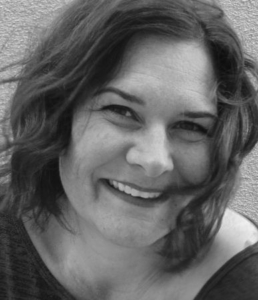What Exactly is ARFID?
When my daughter was a toddler, she was what we considered a “picky eater.” As she got older and her picky eating habits got more severe, we began to seriously worry. She didn’t just clamp her mouth shut or shake her head “no” when new foods were set out for dinner. She would gag or choke if she tried anything new. Meals became a battle, with us trying to get her to eat something healthy, and her continuing to refuse.
Our daughter’s anxiety levels around food got extreme, and we knew that we had a problem when our family was unable to go out to dinner or attend social events without having to worry if there would be food our daughter could eat.
What we didn’t know at the time, and wouldn’t discover for nearly 15 years, was that our daughter had an eating disorder called ARFID, which is Avoidant/Restrictive Food Intake Disorder.
ARFID is often described as being a form of “extreme picky eating.” Dr. Kim DiRé, a trauma and eating disorder specialist, states that: “Avoidant/Restrictive Eating Disorder (ARFID) is an eating disorder like no other. The fear of food and/or the consequences translates in ARFID individuals as “if I eat that, I will die.” The physiological constriction of the mouth tissues, throat, and digestive tract from the fear stops the ability to eat a variety of foods. Malnutrition from ARFID causes many medical issues, including fatigue and loss of motivation. Because ARFID is a sensory disorder as well as an eating disorder, its cure is through somatic treatment.”
My daughter physically could not try new foods or be near foods that made her uncomfortable. She would vehemently refuse to put anything unfamiliar into her mouth, even the smallest of morsels. We pleaded with her, we begged her, we bribed her, but to a person with ARFID, the fear of eating something new is so strong they refuse to eat…even though she was so hungry and wanted to eat. Those who suffer from ARFID are truly afraid they will choke, be poisoned, or die if they eat something they fear or disdain. This is a real somatic or body sensory disorder, with severe ramifications and it affects both boys and girls and can continue throughout adulthood if not treated.
When our daughter was finally diagnosed at age 15, we felt immense relief to know there was a name to her disordered eating. While ARFID is just as severe as anorexia, binge eating, or bulimia, it is different too. People with ARFID do not restrict their eating because of self-esteem, body issues, or the desire to be thin or to look different. The reason they do not eat is because they fear they will die.
Case studies show that many people with ARFID have suffered from a traumatic childhood experience: a choking incident as a toddler; a feeding issue as an infant; an umbilical cord around the neck during the birth; or even in-utero trauma. Difficult births or an incident that happens to the mother while the baby is in the womb can cause ARFID.
Most people with ARFID have a short menu of safe foods they will eat. These safe foods usually consist of “comfort” foods – white breads, french fries, sweets, chicken nuggets, pizza, plain noodles, crackers, and cereal. When an ARFID sufferer has their safe foods, it is nearly impossible to get them to try something new.
People with ARFID suffer from depression and anxiety as a result from the fear, and then the inability to find a way to relieve the symptoms. When it presents in children, it’s easy to become depressed and the anxiety becomes so high that they alienate, and they tend to withdraw from social events. A child with ARFID does not want to go to a birthday party and have all their friends ask them continuously, “Why won’t you eat a hamburger or pizza?” or “Just try some pasta – you’ll like it.”
Children get tired of hearing all of the reasons they should eat and they shut down.
Doctors and therapists are working hard to learn how to treat ARFID. My daughter benefited from somatic experiencing therapy developed by Dr. Peter Levine, and somatic touch therapy. Her doctor would “turn off” her adrenals, which eased her anxiety, along with other somatic work, which gave her the shift in her tissues and textural tolerance to start to try new foods. Of course, there was more to it – a 20-week intense therapy program that involved one-on-one therapy, peer/group therapy, food graphing, a nutritionist, and eventual dinners out with the group.
Therapy and treatment are needed to help retrain the breached tissues in the body of a person with ARFID so that they will become tolerant of even trying the tiniest bite of something new. It is a sensory disorder that affects the body in a significant way. The healing of ARFID changes the lifestyle and nutritional foundation of the person in treatment. If you (or someone you know) think you have the symptoms of ARFID, know that there is help available and that NEDA is a source of this help.
For recovery resources and treatment options, please visit our resource center. If you or someone you know is struggling with an eating disorder, call ANAD’s Helpline at: (888) 375-7767 or the National Alliance of Eating Disorders Helpline at: (866) 662-1235.
If you are thinking about suicide, call or text the National Suicide Prevention Lifeline at 988. In crisis situations, text “NEDA” to 741741 to be connected with a trained volunteer from the Crisis Text Line.
Stephanie Elliot is the author of the young adult novel, Sad Perfect, which is based on her daughter’s journey through ARFID. She is an editor and mental health advocate. More information on books and advocacy can be found at stephanieelliot.com and her ARFID website: stephanieelliot.wixsite.com/arfid.
Dr. Kim DiRé, LPC, MEd, SEP, DBH, is passionate about helping people. Her background in education gives awareness to people’s need to understand along with teaching and psychological experience to delivery healing in specific integrated skill sets. Early development trauma, attachment disorders, eating disorders, and nervous system regulation are part of Dr. DiRé’s specialties.





